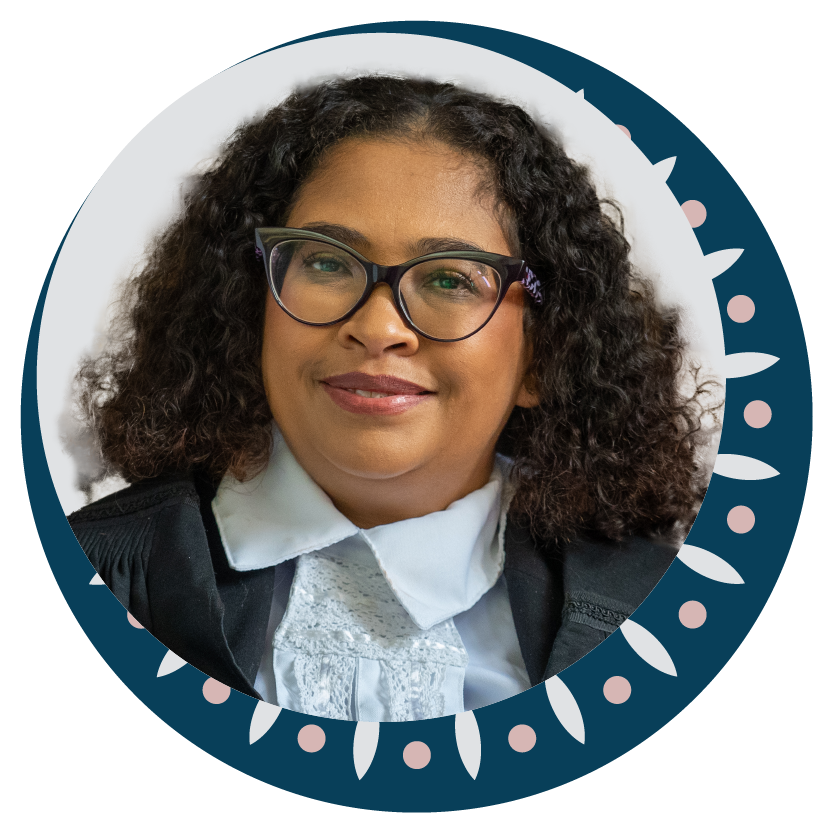
Charlene May
Attorney
Office Number: 021 424 5660
Cellphone: +2772 997 5541
Email: Charlene@wlce.co.za
Address: 2nd floor, 5 St Georges,
St Georges Mall, Cape Town, South Africa
Profile
I completed High School at Elsies River Senior Secondary during a time when the country was filled with hope for a new democracy, and did my LLB degree at the University of the Western Cape during the time when the interim constitution was being tested by the new Constitutional Court. There was lots of promise for what the Constitution held for our country at the dawn of the democracy. During my last year of study I worked as a paralegal at the Women’s Legal Centre which was my first exposure into legal practice, but also into strategic litigation. I completed practical legal training at the University of Cape Town.
After completing practical legal training, I joined the Legal Resources Centre as a Candidate Attorney completing two years of community service with them. In 2006 I was admitted as an attorney of the High Court and I commenced practice at the Legal Resources Centre where I initially specialised in land law and the law related to non-profit organisations. I transitioned from this area and assisted in the development of the equality and non-discrimination focus area of the LRC, which I coordinated until I left the LRC in 2017.
I joined the WLC in August 2017 in many ways coming full circle to the place that ignited by passion for using the law as a tool to advance the rights of women in communities in our country. I have been actively involved in all of the focus areas of the organisation rather in keeping with my restless spirit, and my interest in everything.
I have worked on and steered the WLC v The President case that sought the recognition of Muslim marriages in South Africa through the enactment of legislation. I have worked on that matter since 2017 for the WLC until the judgment was handed down by the Constitutional Court in July 2022. This was a significant moment for me but also for the organisation. The WLC has since the opening of its doors championed the issue and so it was significant that we were able to ensure that we saw this matter through to its conclusion and give legal recognition of marriage and the consequences thereof to thousands of Muslim women in the country. Finally recognising their rights to religious freedom, to be free from discrimination, and to have access to Courts.
I also worked on the Mhlangu case where the Constitutional Court recognised the rights of domestic workers to social security protection in the form of occupational health and safety – this case was personally important, because we were able to put before the Constitutional Court the reality that the majority of domestic workers have historically been black women compelled into the positions and working conditions by slavery and colonialism and that the continuation of denying them full social security protection and recognition of their work was perpetuating this cycle of historical discrimination. As a black woman from a community where women worked as domestic workers the case was important and really gave an opportunity to change our community for the better.
I am an individual member of the ESCR Net and serve on their Women’s Working Group which steers the Networks work on women’s rights. I am also the Chairperson of Sisonke the movement for sex worker decriminalisation in South Africa. As an individual member of ESCR Net I have been committed to the work of the Women’s Working Group within the network, because it speaks to elevating the lived realities of women into regional and international human rights spaces. Its critically important that we hold our states to account when it comes to meeting international human rights standards and commitments, but it’s equally important that those standards are influenced by women’s real experiences so that we can achieve substantive change in the global South and women can enjoy substantive equality.
An important area for me has been the development of human rights language and standards around women’s unpaid care work, because the work is traditionally gendered it has held very little to no economic value yet it forms the foundation of what our society is built on. Women’s unpaid care work can become a burden to women if it’s not recognised as work and that recognition should be accompanied by an enabling rights based framework that compensates women and ensures access to social security protection.
